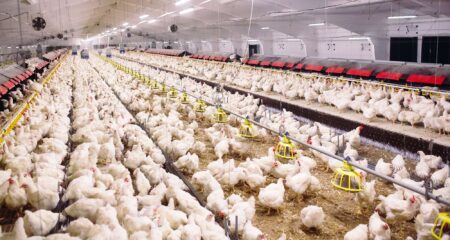Problem
A conversation isn’t a contract. It’s time to put your farm succession plan in writing.
Submitted by email from W.M.
My parents own all the assets of the farm: the land, the machinery, and the livestock. Twelve years ago, they invited me back to the farm to work with them. Since then, I’ve assumed most responsibilities for the grain and cow-calf operations. My parents help with labor at peak times. Dad and I do the marketing together, and Mom does the bookkeeping. There is mutual respect and appreciation.
Because of my role, my parents have been able to take extended vacations, visit my out-of-state siblings, and volunteer at church and in the community. They are healthier, less stressed, and happy. Me? Well, my stress is building, because I have a lot of assumptions but no assurance. Ideas?
—Submitted by email from W.M.
Solution
W.M., you’ve earned the right to ask: “What’s next for you? What’s next for me? What’s next for the farm?” But more than that, you’ve earned the right to assurance — with written clarification and legal documents, not just conversations and assumptions. You may not like all the answers, but you deserve to know them.
It sounds like your family may be following easier options rather than doing the important work of transition planning. Perhaps all of you hint around about the future: what’s right and what’s fair, dropping in thoughts, ideas, opinions, or facts. Or, you may change the subject, choose silence, postpone the discussion, or just get to work. Occasionally, you might hear, “You’re right,” or, “That’s a good idea,” or, “I’ll take care of that.”
Here’s the problem: You may assume everyone actually agrees, leading to appropriate action and expected results.
Bad assumption. You may wake up one morning and realize a conversation is not a contract!
Here’s an all-too-common result: The next generation leaves, due to dashed hopes of recognition and transition. The senior generation wonders, “Why did I bother?” Family members stop talking to each other. Often, the farm is split or sold.
Here’s a better way: Apply the valuable lessons learned from others who have successfully transitioned the education, experience, and physical assets of their farm business to the next generation.
After more than 30 years consulting with farm and ranch families, I’ve learned that with family, more — not less — needs to be clarified and in writing. Here’s a list to get you started:
- Titles, deeds, and other documents of asset ownership
- Business structure of corporations, LLCs, and partnerships, with organizational and operational agreements
- Legal exit strategy, including buy-sell agreement and other documents for each business entity; if sole proprietor, legal documents securing the intended transfer
- Leases and other contracts
- Compliance and regulatory documents
- Signature and decision-making authority
- Accurate meeting minutes
- Business documents, including mission statement, business plan, goals, standards, and financial documents
- Conflict resolution process
- Employee information: job descriptions, employment contracts, compensation packages, salaries, and fringe benefits
- Succession plan outlining ownership and leadership
- Estate plans, if individually owned assets affect the continuation of the business
W.M., what do you really need to know? Since your relationship is strong, ask for time to discuss your concerns. Choose from these ideas to get started. They can give you a solid foundation and a clearer future and explain the rules of the game to all involved.


:max_bytes(150000):strip_icc()/Markets-10-Corn-up-wheat-up-5-a41d988ceef74aedbcbc093b791d7bdc.jpeg)
:max_bytes(150000):strip_icc()/IMG_1591-2048x1365-362687ca596f4814967abffff2b4be2c.jpg)
:max_bytes(150000):strip_icc()/SuccessfulFarmingShareImage-8fed6410b43147a19ed5ea1e3243227f.png)


:max_bytes(150000):strip_icc()/ProblemArtOCT25-a6e1fd0823ff4e1f8d8912ef07a53800.jpeg)

:max_bytes(150000):strip_icc()/IMG_7575-ac6db3006a2145109bcc2df421c7a962.jpeg)
